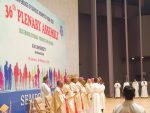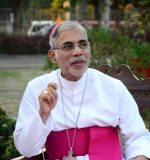New Delhi: Any move to amend the 102-year-old constitution of St Stephen’s to give more powers to the principal and Church of North India (CNI) might cost the college its Delhi University affiliation as it would be in violation of the varsity’s statutes and ordinances.
Also, sources said, derecognition by the university is likely to result in the prestigious college losing funds from the University Grants Commission (UGC), which currently provides 95 per cent funding to the institution with the remaining money coming from the CNI-controlled St Stephen’s Trust.
Stephen’s principal Valson Thampu, who is retiring in February next year, has circulated a draft amendment in which he has proposed that the principal be empowered to take disciplinary action against students or staff irrespective of the Governing Body’s opinion.
He has also called for giving a major say to CNI in the functioning of the college, handing over the faculty appointments and admissions to the Supreme Council and amending the composition of the GB, NDTV reported.
The amendment also proposes to replace St Stephen’s College Trust, which currently runs the college, with a proposed St Stephen’s Educational Society, which will have the power to establish Stephen’s-like private institutions across the country.
But, the proposed amendment is likely to become a bone of contention between St Stephen’s and Delhi University as, according to university statutes, a constituent college of DU is bound to follow common rules laid down in the ordinance regarding faculty appointments, constitution of governing bodies and powers of the principal.
“If the institution which was granted the status of constituent unit changes the very nature of the constitution, its recognition will be jeopardised.
“There are certain exemptions for Stephen’s due to its being a minority college but, in this case, DU may object to any amendment which is prejudicial to the university and, if the college is de-affiliated, it might lose UGC funding,” a source said.
According to university Statute-30(D), any amendments that pertain to content of teaching, rules and regulations of faculty appointments and service conditions and modification of the constitution of Governing Body can be effected only after an enquiry is done by the DU’s Executive Council, which is the statutory decision-making body.
University officials said they believe that, “St Stephen’s will deliberate before taking any such step that may undermine its relationship with Delhi University and be prejudicial to the age-old bond between the two”.
Mr Thampu, however, is claiming that it is the Supreme Council’s decision to amend the constitution and there is no violation of procedures or law in the same.
“Whatever has been proposed is very much within the ambit of the law. I can challenge anyone to find any legal or procedural or statutory loophole in the same,” he said.
The move to amend the constitution has also attracted the ire of Stephen’s alumni and teachers.
“A once great college, open to all of India, all Indians, is set to become even more of a Christian ghetto,” noted historian and a college alumnus Ramachandra Guha said in a tweet.
The college teachers also alleged that the amendment will not only pave the way for “dictatorial” functioning but would also make the institution inaccessible for “non-Christian” students and faculty.










